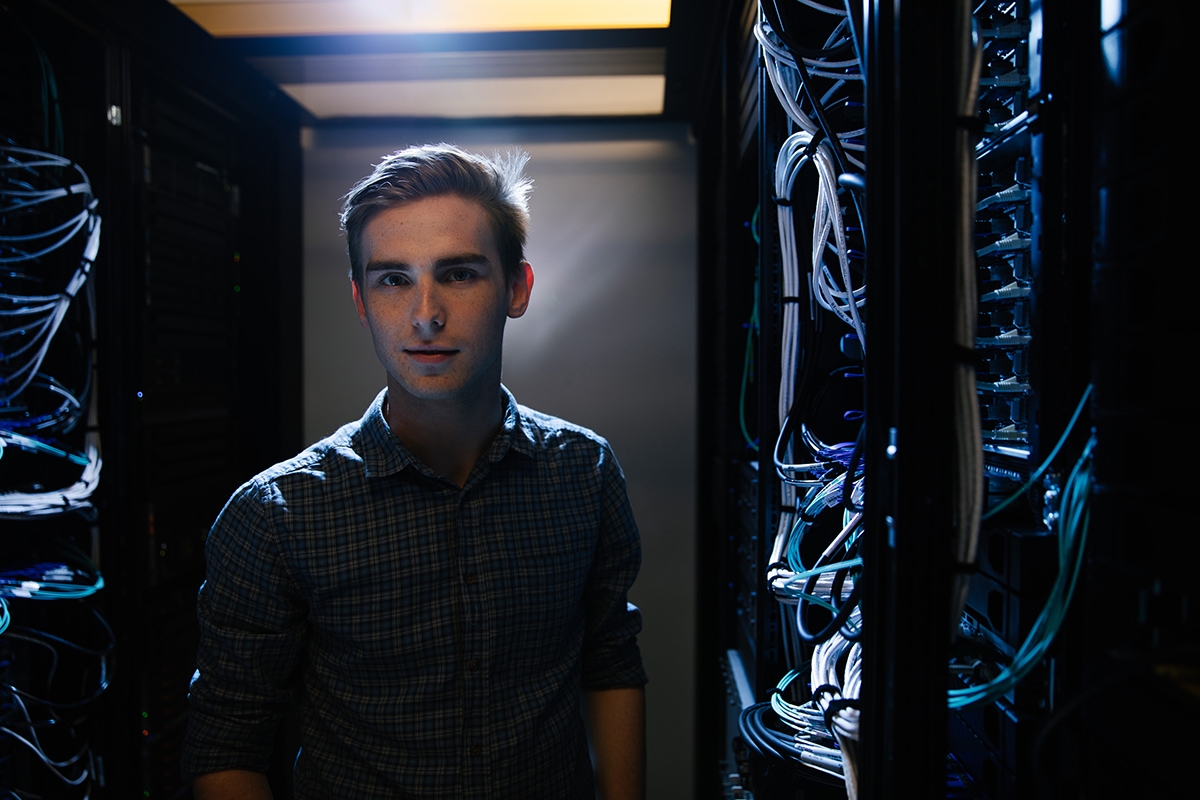Machine learning edge at Lot Fourteen
Posted September 18, 2020

The University of Adelaide’s Australian Institute for Machine Learning (AIML) and Lot Fourteen are growing in tandem, with AIML educating the professionals who will fill the careers and entrepreneurial opportunities being created in the innovation precinct.
AIML operations manager Dr Kathy Nicholson says alignment of sectors between AIML and the precinct, including defence, space, agritech and medical machine learning, means that students can see their future jobs being created around them.
Lot Fourteen now has 36 established businesses and 43 startups, and a precinct population of 860, which is set to grow to more than 1,000 by the end of the year. The precinct will ultimately have 6,000 people in businesses and 1,000 students and researchers.
“We are training the workforce who will fill the jobs at Lot Fourteen and create its future startups,” she said. “These are the innovators and entrepreneurs of tomorrow.”
“Lot Fourteen is creating high-value jobs in Adelaide in aligned sectors and our students can create relationships with potential employers and partners while they are studying,” she said.
“Most PhD research projects are very academic. AIML and Lot Fourteen is a wonderful marriage that brings research and industry together. “
In response to industry demand, AIML is offering an increasing number of PhD scholarships, with a focus on the defence, space and health sectors as well as social issues.
Applicants with qualifications in computer science, engineering and mathematics are encouraged to apply.
“Machine learning is a core capability for our future and has the potential to increase efficiencies across all industries and sectors, so it’s important for Australia to increase our sovereign capability in this field.”
“It can influence almost every aspect of society.”
Common examples of machine learning included the predictive text and speech and facial recognition capabilities of personal devices; quality control technology in the manufacturing industry; and satellite surveillance.

AIML is the largest university-based research group in machine learning in Australia and is ranked third in the world for computer vision research.
“Unless we train people to understand and manage it, we are trusting international companies and agencies to do that for us. “
“We can only achieve sovereign capability with a good pipeline of training, so we are keen to increase the number of domestic students to retain more of them in Australia,” Kathy said.
“A lot of domestic students go to the United States and build great careers and entrepreneurial businesses there – we want our people to stay in Adelaide.”
Machine learning is an application of artificial intelligence (AI) that provides systems with the ability to automatically learn and improve from experience without being explicitly programmed. It focuses on the development of computer programs that can access data and use it to learn for themselves.
“Machine learning is about finding patterns in data that the human brain cannot detect and to ask questions we had not thought about,” Kathy said.
“For example, machine learning software for social housing could take huge volumes of data and find patterns in people’s circumstances that lead to housing insecurity.”
Medical machine learning involves the development of new algorithms and models which can then interpret medical data and improve clinical diagnosis and prognosis.
AIML researchers have applied this technology to cardiology, colorectal cancer screening, obstetrics and gynaecology, arthroscopy, public health, stroke, vascular dementia, and breast cancer screening.
The AIML was established in 2018 through co-investment by the Government of South Australia and the University of Adelaide, creating Australia’s first institute dedicated to ML research. AIML was formed from the Australian Centre for Visual Technologies, a group with a long history of delivering high-impact fundamental and applied research.
With about 130 members, including higher degree by research students, post-doctoral students and staff researchers, AIML is the largest university-based research group in machine learning in Australia and is ranked third in the world for computer vision research.
Its work covers the themes of machine learning theory, robotic (computer) vision, medical machine learning, trusted autonomous systems, surveillance and tracking, photogrammetry and 3D modelling.
It has joined forces with the Defence Artificial Intelligence Centre to create Poppy@AIML, an R&D collaboration for the rapid development of artificial intelligence and machine learning prototypes for the Australian Defence Force. The lab will also work with organisations such as Lockheed Martin Australia’s STELaRLab, Defence Science Technology Group.
Two PhD research scholarships for three years each and a post-doctoral research position are currently advertised as part of the Poppy@AIML initiative.
AIML is regularly recruiting for postdoctoral researchers and machine learning engineers.
Information on scholarship opportunities can be found here and directly from AIML here.
Great things come to those who subscribe
Subscribe
"*" indicates required fields
Adelaide 5000
Developed by Frame Creative
Design by The Sideways Theory
Design by Sixth Street Design
Developed by Frame Creative
© Lot Fourteen All Rights Reserved

